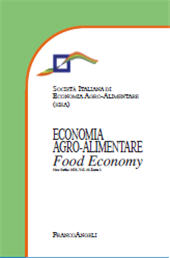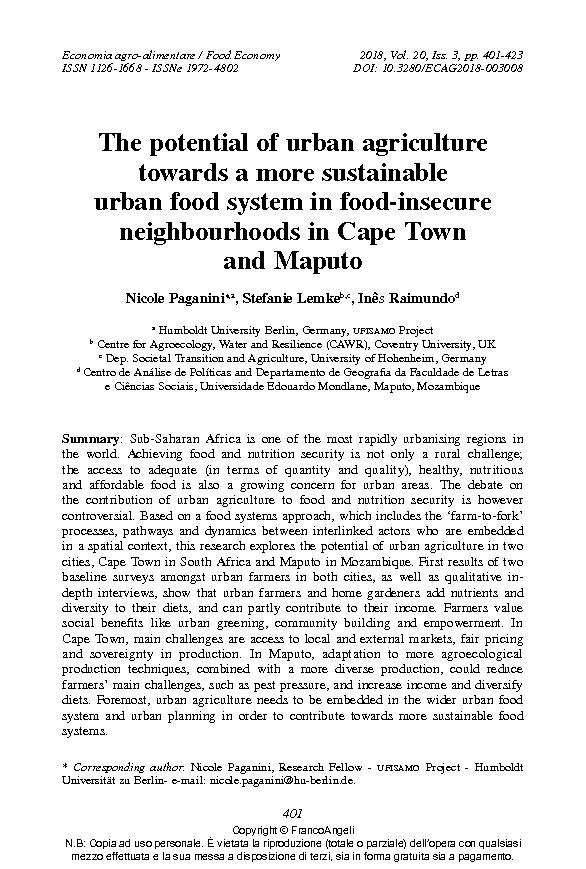The potential of urban agriculture towards a more sustainable urban food system in food-insecure neighbourhoods in Cape Town and Maputo
401-423 p.
Sub-Saharan Africa is one of the most rapidly urbanising regions in the world. Achieving food and nutrition security is not only a rural challenge; the access to adequate (in terms of quantity and quality), healthy, nutritious and affordable food is also a growing concern for urban areas. The debate on the contribution of urban agriculture to food and nutrition security is however controversial. Based on a food systems approach, which includes the 'farm-to-fork' processes, pathways and dynamics between interlinked actors who are embedded in a spatial context, this research explores the potential of urban agriculture in two cities, Cape Town in South Africa and Maputo in Mozambique. First results of two baseline surveys amongst urban farmers in both cities, as well as qualitative indepth interviews, show that urban farmers and home gardeners add nutrients and diversity to their diets, and can partly contribute to their income.
Farmers value social benefits like urban greening, community building and empowerment. In Cape Town, main challenges are access to local and external markets, fair pricing and sovereignty in production. In Maputo, adaptation to more agroecological production techniques, combined with a more diverse production, could reduce farmers' main challenges, such as pest pressure, and increase income and diversify diets. Foremost, urban agriculture needs to be embedded in the wider urban food system and urban planning in order to contribute towards more sustainable food systems. [Publisher's text].
Fa parte di
Economia agro-alimentare : XX, 3, 2018-
Articoli dello stesso fascicolo (disponibili singolarmente)
-
Informazioni
Codice DOI: 10.3280/ECAG2018-003008
ISSN: 1972-4802
PAROLE CHIAVE
- Food and nutrition security, urban agriculture, urban food systems, agroecology



